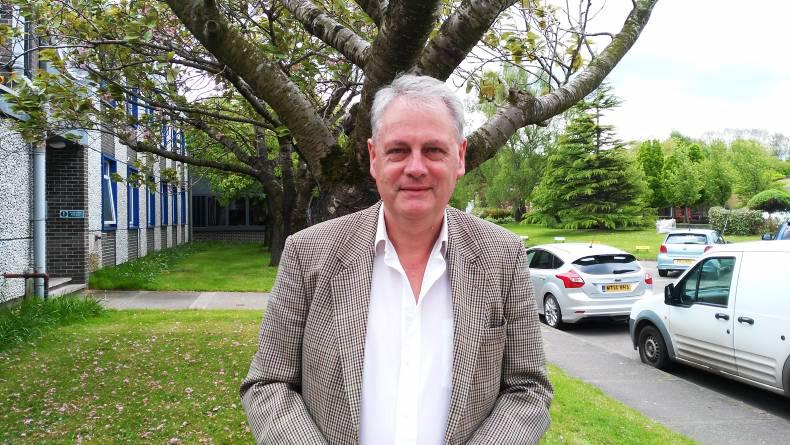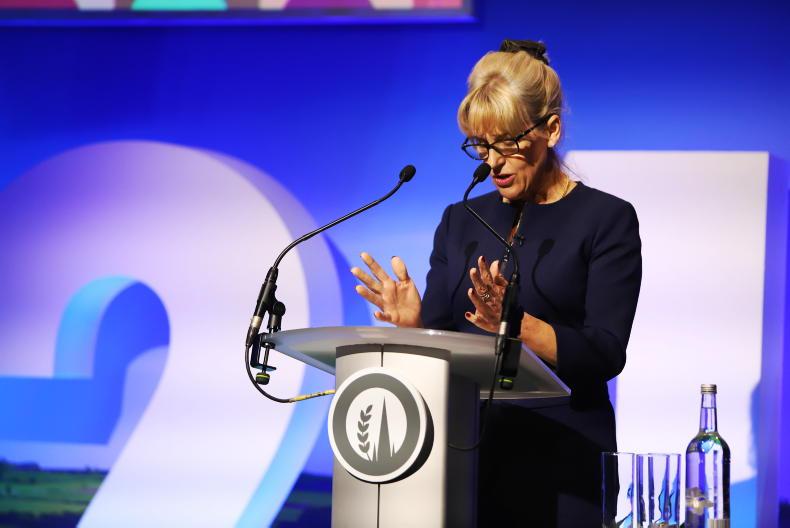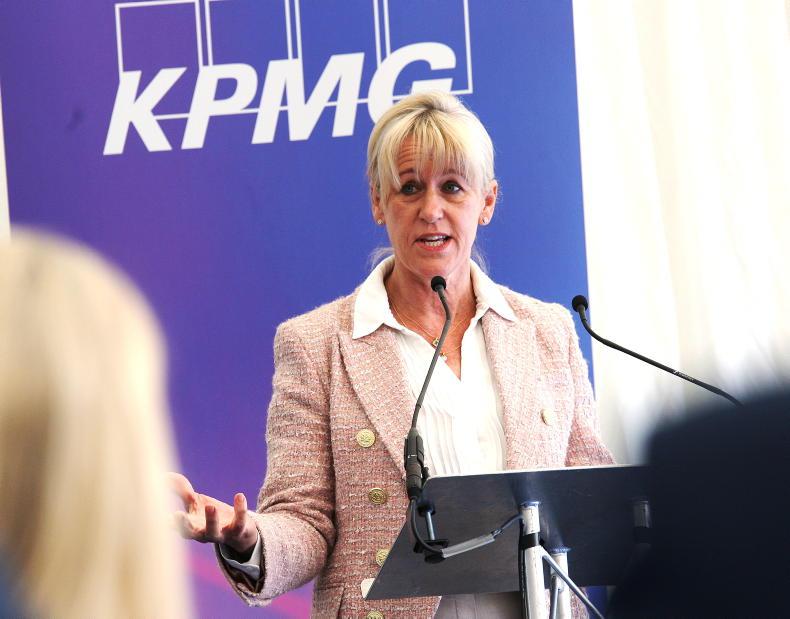In: Alistair Mackintosh, Cumbria
Alistair Mackintosh is a beef, sheep and arable farmer from western Cumbria who believes that staying in Europe is the best way forward for British agriculture.
“The fundamental issue for me as a businessman is that there is a free market there and a huge market there and we have no tariff or trade barriers to work within the market,” he said. “Why would we want to leave that environment when you have an affluent consumer you want to be able to supply?”
We seem to have one foot in and one foot out; I genuinely believe we could be better Europeans
On the structural issues and bureaucracy within the EU he said: “No organisation is ever perfect. But there are some prime examples of countries who work within Europe, are good Europeans and they are able to benefit from it better.
“We seem to have one foot in and one foot out; I genuinely believe we could be better Europeans.”
Reports would suggest that if the UK leaves it will have more power to decide whether or not to use GM crops or certain sprays but if it still wants to trade with Europe there are certain production standards.
“We also have to consider in this country that we have a consumer that is well educated and well informed,” said Mackintosh. “They want to have an influence on whether we use GM and what sort of sprays we use. They have greater influence over the government through email and social media than we ever could as individual farmers.”
The number of new countries joining the EU annoys some farmers, but Mackintosh said: “If you’re going to enhance the market and the rules are going to be the same for everybody and you’ve got a level playing field that doesn’t worry me at all. The bigger the market the better.”
His argument is that there a lot more countries wanting to join than leave, questioning the logic in the Brexit campaign.
“I can understand other countries outside of Europe looking at the European market and looking at the European consumer and saying ‘I want a share of that’.
“And yet we are asking ourselves do we want to be part of that? To be honest I don’t hear from Brexit people a credible alternative.”
Apparently subsidies work out at £4/week for every taxpayer to farmers, less than 60p/day. For that, consumers get “affordable British food, they get high animal welfare standards, they get traceability, they get the environment that everybody sees, they get the countryside that is managed.”
If the UK government decided to subsidise farming upon leaving Europe he said “it would be for environmental benefits or that sort of approach. When you put money into the environment, it is all based on income foregone, so you would question the direction.”
“We almost lost DEFRA as a department in the last government shake-up,” he said of the importance placed on British agriculture by the government.
He added that it is naive to think that leaving Europe and subsidies behind will make it easier for new entrants to get into farming.
“If you take the capital and the value out of agriculture you are working purely in a commodity world. Look at New Zealand just now – you’ll put people out of business so quickly.”
Liste to Alistair and Andrew in our podcast below:
Undecided: Andrew Baxter, Worcestershire
Andrew Baxter is farming beef, sheep and arable on a 700ac tenant farm, the majority of which is on a traditional Farm Business Tenancy agreement. He has been listening to the different sides and is undecided but is leaning towards voting to remain in the EU.
“One seems very persuasive and then you hear somebody from the other side and think they’ve got a logical reason as to why we ought to be remaining or leaving,” he said, adding that it would be a rush of blood to the head when he steps into the booth causing him to vote to leave the EU. “I probably err on the side of in because I think that we probably wouldn’t get any support from anybody and yet it would be lovely to farm without all the hassle we get. But we’ve got to bear in mind that the hassle is being created by the British government, not the EU, because they’ve gold plated all the EU legislation and that, I think, will still happen.”
He said that while it probably won’t be as straightforward to exit as the Brexit campaigners believe, the UK hasn’t “made a fortune” from being in the EU either.
“The other slightly worrying thing is that, while the CAP has been our lifeline over the last number of decades, in the last round of negotiations the British government had the view that they wanted to see subsidies reduced and wiped out by 2020. It was only the French that actually meant that we got what we got, there’s an awful lot of greening measures, unfortunately, but we’ve got to remember that the British government would like to see all subsidies lifted.
“So it’s a really tricky decision and I’m not sure that we ought to be asking the nation what we should do. It was just a political wease to win a few votes, which I think is the biggest mistake [David] Cameron’s made in his political career because I suspect he’ll end up out on his ear in another month’s time.
“We undervalue the value of food really and that’s the bottom line.”
Farming itself is not the only factor that comes into play for voters, even those who earn their living from it.
There is 45% of me that thinks why don’t we give it [leaving] a go and see what happens but there’s really no going back as far as I understand it
“There is 45% of me that thinks why don’t we give it [leaving] a go and see what happens but there’s really no going back as far as I understand it,” he said, conceding that there are far more issues at stake than just subsidising British farmers. “The eurozone looks awful and how much longer are the Germans willing to bankroll everyone else. At some point there will come a crunch and I do think it would be probably better if we are involved in trying to sort that mess out because the UK has stood on the sidelines before and we’ve had to go and sort Europe out. Sadly it’s always been to have actual war; I think we might have economic wars, I don’t think we’ll ever go back to war in Europe.”
Read more
Full coverage: Brexit
In: Alistair Mackintosh, Cumbria
Alistair Mackintosh is a beef, sheep and arable farmer from western Cumbria who believes that staying in Europe is the best way forward for British agriculture.
“The fundamental issue for me as a businessman is that there is a free market there and a huge market there and we have no tariff or trade barriers to work within the market,” he said. “Why would we want to leave that environment when you have an affluent consumer you want to be able to supply?”
We seem to have one foot in and one foot out; I genuinely believe we could be better Europeans
On the structural issues and bureaucracy within the EU he said: “No organisation is ever perfect. But there are some prime examples of countries who work within Europe, are good Europeans and they are able to benefit from it better.
“We seem to have one foot in and one foot out; I genuinely believe we could be better Europeans.”
Reports would suggest that if the UK leaves it will have more power to decide whether or not to use GM crops or certain sprays but if it still wants to trade with Europe there are certain production standards.
“We also have to consider in this country that we have a consumer that is well educated and well informed,” said Mackintosh. “They want to have an influence on whether we use GM and what sort of sprays we use. They have greater influence over the government through email and social media than we ever could as individual farmers.”
The number of new countries joining the EU annoys some farmers, but Mackintosh said: “If you’re going to enhance the market and the rules are going to be the same for everybody and you’ve got a level playing field that doesn’t worry me at all. The bigger the market the better.”
His argument is that there a lot more countries wanting to join than leave, questioning the logic in the Brexit campaign.
“I can understand other countries outside of Europe looking at the European market and looking at the European consumer and saying ‘I want a share of that’.
“And yet we are asking ourselves do we want to be part of that? To be honest I don’t hear from Brexit people a credible alternative.”
Apparently subsidies work out at £4/week for every taxpayer to farmers, less than 60p/day. For that, consumers get “affordable British food, they get high animal welfare standards, they get traceability, they get the environment that everybody sees, they get the countryside that is managed.”
If the UK government decided to subsidise farming upon leaving Europe he said “it would be for environmental benefits or that sort of approach. When you put money into the environment, it is all based on income foregone, so you would question the direction.”
“We almost lost DEFRA as a department in the last government shake-up,” he said of the importance placed on British agriculture by the government.
He added that it is naive to think that leaving Europe and subsidies behind will make it easier for new entrants to get into farming.
“If you take the capital and the value out of agriculture you are working purely in a commodity world. Look at New Zealand just now – you’ll put people out of business so quickly.”
Liste to Alistair and Andrew in our podcast below:
Undecided: Andrew Baxter, Worcestershire
Andrew Baxter is farming beef, sheep and arable on a 700ac tenant farm, the majority of which is on a traditional Farm Business Tenancy agreement. He has been listening to the different sides and is undecided but is leaning towards voting to remain in the EU.
“One seems very persuasive and then you hear somebody from the other side and think they’ve got a logical reason as to why we ought to be remaining or leaving,” he said, adding that it would be a rush of blood to the head when he steps into the booth causing him to vote to leave the EU. “I probably err on the side of in because I think that we probably wouldn’t get any support from anybody and yet it would be lovely to farm without all the hassle we get. But we’ve got to bear in mind that the hassle is being created by the British government, not the EU, because they’ve gold plated all the EU legislation and that, I think, will still happen.”
He said that while it probably won’t be as straightforward to exit as the Brexit campaigners believe, the UK hasn’t “made a fortune” from being in the EU either.
“The other slightly worrying thing is that, while the CAP has been our lifeline over the last number of decades, in the last round of negotiations the British government had the view that they wanted to see subsidies reduced and wiped out by 2020. It was only the French that actually meant that we got what we got, there’s an awful lot of greening measures, unfortunately, but we’ve got to remember that the British government would like to see all subsidies lifted.
“So it’s a really tricky decision and I’m not sure that we ought to be asking the nation what we should do. It was just a political wease to win a few votes, which I think is the biggest mistake [David] Cameron’s made in his political career because I suspect he’ll end up out on his ear in another month’s time.
“We undervalue the value of food really and that’s the bottom line.”
Farming itself is not the only factor that comes into play for voters, even those who earn their living from it.
There is 45% of me that thinks why don’t we give it [leaving] a go and see what happens but there’s really no going back as far as I understand it
“There is 45% of me that thinks why don’t we give it [leaving] a go and see what happens but there’s really no going back as far as I understand it,” he said, conceding that there are far more issues at stake than just subsidising British farmers. “The eurozone looks awful and how much longer are the Germans willing to bankroll everyone else. At some point there will come a crunch and I do think it would be probably better if we are involved in trying to sort that mess out because the UK has stood on the sidelines before and we’ve had to go and sort Europe out. Sadly it’s always been to have actual war; I think we might have economic wars, I don’t think we’ll ever go back to war in Europe.”
Read more
Full coverage: Brexit









SHARING OPTIONS